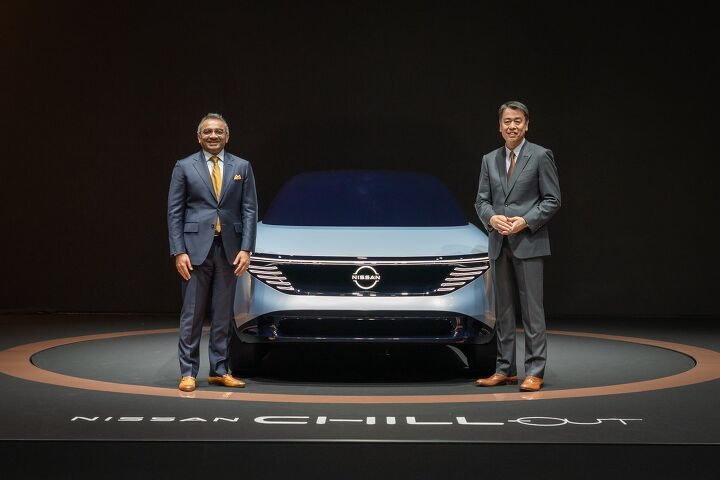#NissanAmbition2030
Opinion: 'Nissan Ambition 2030' Was an Hour of Wishful Thinking
Nissan Motor Co. has confirmed plans to invest 2 trillion yen ($17.65 billion USD) over the next five years to accelerate its electric vehicle development program. Like most major manufacturers, the automaker wants to launch a bevy of electrified products over the next decade and derive a relevant portion of its income from EVs.
As explained by CEO Makoto Uchida on Monday as part of the “Nissan Ambition 2030,” the plan is to launch 23 new vehicles with some amount of electrification while it attempts to implement solid-state batteries into three concept vehicles that supposedly foreshadow future lineups. These include the battery-electric “Surf-Out” lifestyle pickup, “Max-Out” sports convertible, “Chill-Out” regular car, and “Hang-Out” adventure crossover. Though all three appear to be little more than drafts of vehicles Nissan would eventually like to build, boasting technologies that we’re not sure are feasible. For example, the Hang-Out is featured with a polygonal purple awning that oozes impossibly out of the vehicle’s roof. It lacks realism, which ended up being a central theme of the Nissan Ambition 2030 presentation that was broadcast on Monday.
















Recent Comments